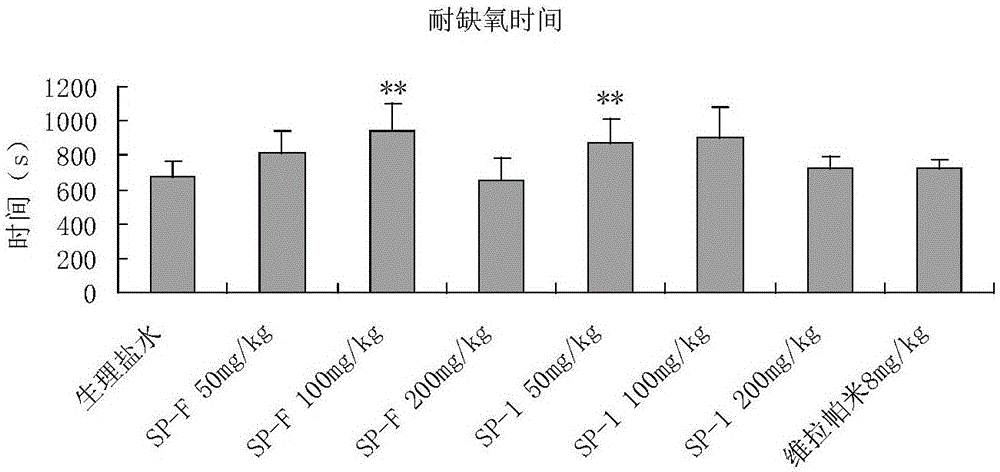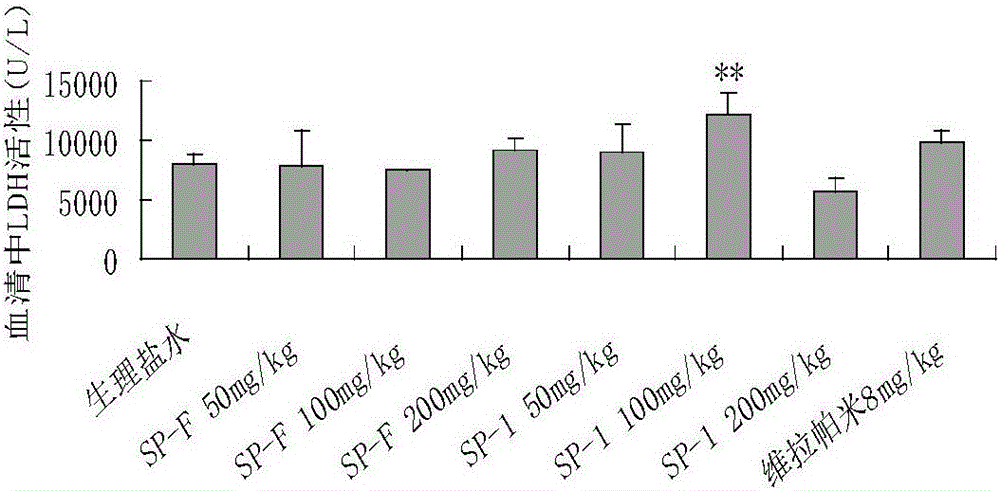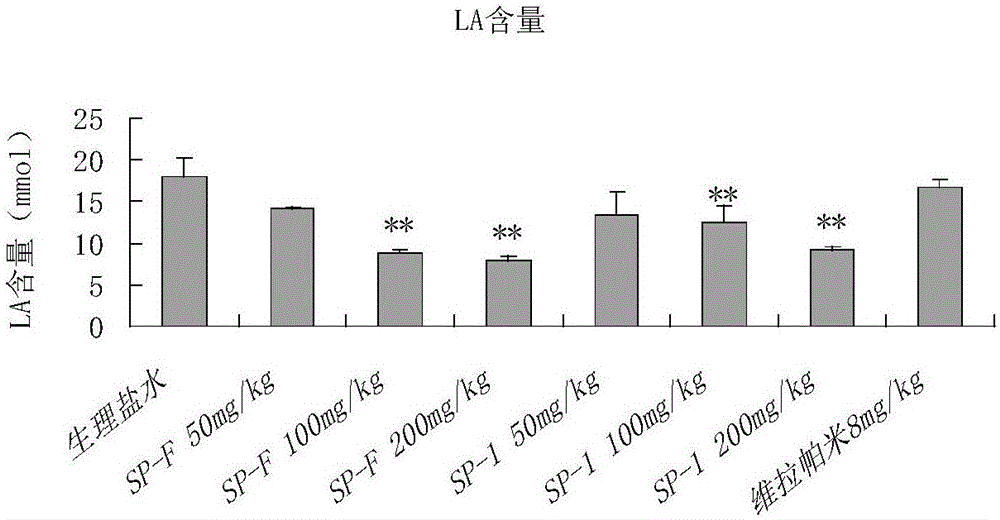Preparation method and application of sleeve-fish collagen polypeptide and iron complex thereof
A technology of collagen peptides and iron complexes, applied in the field of medicine, to achieve the effects of easy control, no pollutant discharge, and content reduction
- Summary
- Abstract
- Description
- Claims
- Application Information
AI Technical Summary
Problems solved by technology
Method used
Image
Examples
Embodiment 1
[0024] Embodiment 1. Preparation of squid skin collagen polypeptide
[0025] 200Kg of fresh squid skin, minced with a meat grinder. The shredded squid skin is placed in a high-pressure reaction pot. Add 1200L of 3% acetic acid water (i.e. water 1160L, glacial acetic acid 36Kg or 72 bottles of 500ml glacial acetic acid mixed), and stir while adding until the addition is complete. After the acetic acid water is added and stirred evenly, start heating and control the temperature at 121°C. After hydrolysis for 1 hour, stop heating immediately, let it cool down to ~105°C naturally, then slowly open the release valve, open the feeding port, and add 2.5Kg Activated carbon, keep warm at 90-100°C for 20 minutes. Then centrifuge, and the centrifugate is concentrated to about 300L. After the concentrate was cooled to room temperature, 3 times the amount (V / V) of 95% ethanol was added, stirred while adding, and allowed to settle overnight. The precipitate was centrifuged, and the filt...
Embodiment 2
[0027] Embodiment 2. Preparation of squid skin collagen polypeptide
[0028] Fresh squid skin 100Kg, minced with a meat grinder. The shredded squid skin is placed in a high-pressure reaction pot. Add 600L of 8% acetic acid water (that is, 580L of water and 18Kg of glacial acetic acid mixed), and stir while adding until the addition is complete. After the acetic acid water is added and stirred evenly, start heating, the temperature is controlled at 110°C, after hydrolysis for 1 hour, stop heating immediately, let it cool down to ~105°C naturally, then slowly open the release valve, open the feeding port, and add 1Kg of activated carbon , 90 ~ 100 ℃ for 20 minutes. Then centrifuge, and the centrifugate is concentrated to about 150L. After the concentrate was cooled to room temperature, 3 times the amount (V / V) of 95% ethanol was added, stirred while adding, and allowed to settle overnight. The precipitate was centrifuged, and the filtrate was filtered again. The ethanol was...
Embodiment 3
[0029] Embodiment 3. Preparation of squid collagen polypeptide iron complex
[0030] Dissolve 30.00 g of squid skin hydrolyzed peptide in 120 mL of distilled water, add 2.8% ferrous sulfate and dissolve in 30 mL. Under magnetic stirring, the ferrous sulfate solution was slowly added to the squid skin hydrolyzed peptide solution, and reacted at room temperature for 3 hours. After the reaction solution was filtered with absorbent cotton, 3 times the amount of 95% ethanol was added to the filtrate for precipitation. Suction filtration, washing with absolute ethanol twice, and the filter residue was vacuum-dried at room temperature (removing ethanol). Reuse 420mL of distilled water to dissolve and freeze-dry to obtain squid skin hydrolyzed peptide ferrous salt (loose brown-yellow scales). The yield was 47.8%.
PUM
 Login to View More
Login to View More Abstract
Description
Claims
Application Information
 Login to View More
Login to View More - R&D
- Intellectual Property
- Life Sciences
- Materials
- Tech Scout
- Unparalleled Data Quality
- Higher Quality Content
- 60% Fewer Hallucinations
Browse by: Latest US Patents, China's latest patents, Technical Efficacy Thesaurus, Application Domain, Technology Topic, Popular Technical Reports.
© 2025 PatSnap. All rights reserved.Legal|Privacy policy|Modern Slavery Act Transparency Statement|Sitemap|About US| Contact US: help@patsnap.com



